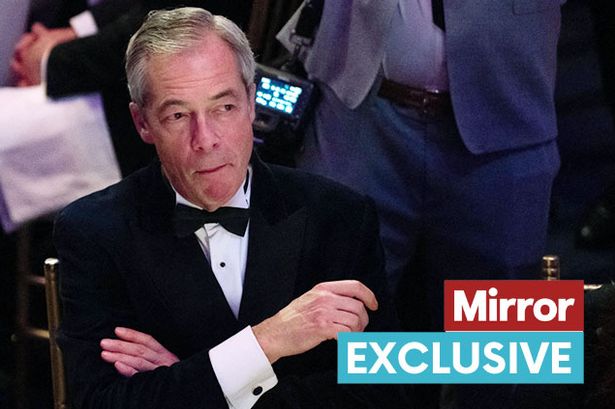Nigel Farage, a prominent figure in British politics, particularly known for his role in the Brexit campaign, has reportedly earned over £570,000 in less than six months through a portfolio of nine different roles. This substantial income reflects his continued engagement in media, political commentary, and business ventures, capitalizing on his public profile and established connections. While the exact breakdown of his earnings across all nine roles isn’t always publicly available, an examination of the known details provides insights into the sources of his income and the potential scale of his financial interests. This examination highlights the diverse nature of Farage’s professional activities and the significant financial rewards they generate.
A significant portion of Farage’s income is derived from his media engagements. He hosts a regular show on GB News, a role that provides a substantial platform for his political views and commentary. While the exact salary for this position hasn’t been officially disclosed, media reports suggest it constitutes a considerable part of his overall earnings. Beyond his GB News contract, Farage also undertakes speaking engagements and makes appearances on other media platforms, further supplementing his income. These engagements often involve commentary on current affairs, political analysis, and discussions related to Brexit, leveraging his expertise and public profile to command lucrative fees.
In addition to his media work, Farage is involved in various business ventures. He serves as an advisor to the Dutch investment firm, Auden Asset Management BV. This role, focusing on environmental, social, and governance (ESG) investments, might seem paradoxical given some of his past political stances, but it nevertheless demonstrates his ability to navigate diverse business landscapes. The details of his compensation for this advisory role are not publicly known, but it can be assumed to contribute significantly to his overall income, given the typical remuneration for such positions in the financial sector. Further details on the specifics of his advisory work and the clients he serves remain largely undisclosed.
Furthermore, Farage has ventured into the world of advertising, becoming the face of a luxury watch brand and promoting cryptocurrencies. These endorsements exploit his recognizable persona and wide reach, transforming his public profile into a valuable marketing asset. While the exact financial terms of these deals are often confidential, they are likely structured to provide substantial payments based on brand exposure and potential sales generated. The choice of products he endorses, ranging from luxury goods to digital currencies, suggests a strategic approach to maximizing his earning potential across different market segments.
It is important to acknowledge the complexities of assessing Farage’s total income with absolute precision. While some information is publicly available, other details, like his earnings from private companies and specific endorsement deals, remain largely undisclosed. This lack of transparency makes it challenging to paint a completely accurate picture of his financial landscape. However, based on available information and industry benchmarks, it is clear that Farage has successfully cultivated diverse revenue streams, combining media, political commentary, and business ventures to generate substantial income. This entrepreneurial approach has allowed him to remain a financially successful figure even after stepping back from frontline politics.
Finally, Farage’s case exemplifies the potentially lucrative intersection of media, politics, and business. His ability to monetize his public persona highlights the growing trend of individuals leveraging their political capital for financial gain. This phenomenon raises questions regarding transparency, potential conflicts of interest, and the blurring lines between political commentary and commercial endorsements. While it is not unusual for public figures to pursue diverse professional opportunities, the scale of Farage’s earnings and the variety of his roles necessitates further scrutiny and analysis of the ethical implications of such lucrative post-political careers. Understanding the financial motivations and potential conflicts arising from these engagements is crucial for fostering informed public discourse and ensuring accountability.














